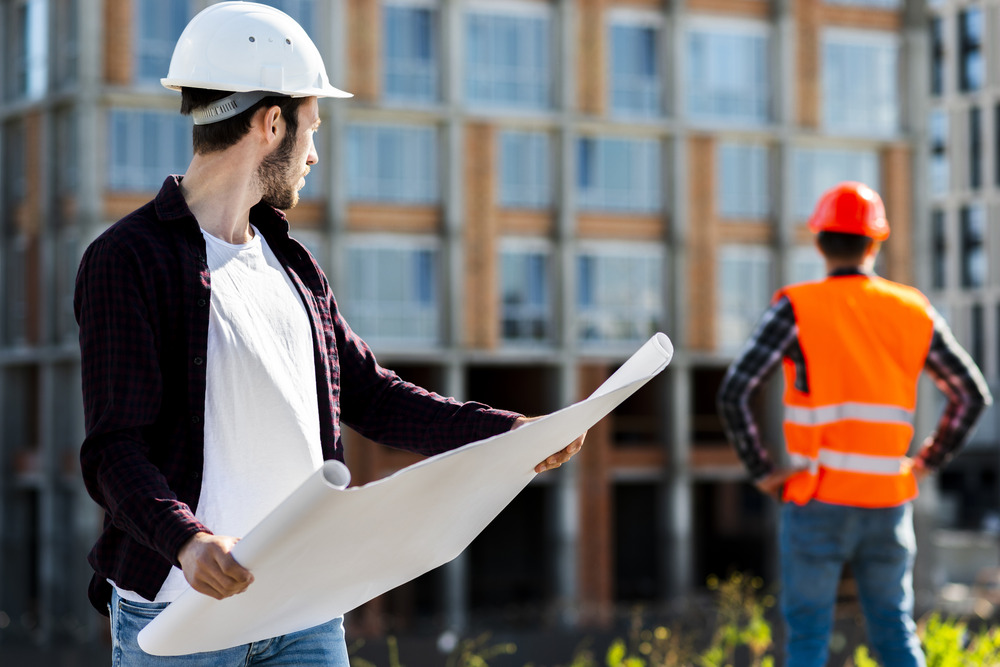
Safety and legal compliance is another important factor that comes into consideration in the case of a new commercial building; inspection is one of the ways through which inspections are conducted on the new commercial buildings under construction. To reduce costs, time, or compliance issues that may occur after the construction of the building, it is essential to have a proper inspection process done. Let’s explore how commercial building inspection during new construction is helpful for property developers, builders, and investors so as to make the process seamless from start to finish.
It is important to ensure that a construction project meets safety codes, regulations, and quality standards before occupancy is granted, which can be done through building inspections. For commercial property, it makes the property suitable to conduct business and for the intended use of the building. These include structural condition, fire prevention, safety features, electrical, plumbing, heating/ventilation/air conditioning, and barrier-free access.
Inspection also prevents the occurrence of problems in the later phase of construction because the problems could also show up during the construction phase. For example, if improper materials are used or when the construction procedures are not followed according to industry standards, an inspection can alert this to the contractors, thus providing the contractors with an opportunity to rectify the situation.
Key Stages of New Construction Inspections
The inspection processes performed in the construction of commercial buildings are usually done in phases. Here are the key stages when inspections typically occur:
Foundation Inspection: The first inspection is conducted when the foundation of the building is put in place. They examine the depth, type of soil, as well as the quality of material used to lay the foundation to what has been planned and outlined by the engineer, as well as the local construction laws. Problems with the foundation can reflect on the rest of the building; hence, this is an important segment of inspection.
Framing Inspection: Perimeter framing comes after the laying of the foundation and can be considered as one of the critical construction phases. During the framing inspection, people check the construction of the outline of your building to see if it is as per the architectural drawing and check if it meets the regulations set for construction. The frame bears the roof, floors, walls, or any other structure that may be provided in a given building.
Rough-In Inspection: Always, the rough-in work is inspected before walls and floors are closed. This also entails the assessment of electrical wiring, plumbing pipes, heating and cooling ducts, and other utility installments. It confirms that all the mechanical systems are well installed and correctly in line with the local building code before they are covered by the dry wall or concrete.
Insulation Inspection: Insulation is checked once internal wiring and plumbing are done on the walls and floors as well as the ceiling. Energy efficiency is checked by making sure that the insulation is installed in the right manner in the building. Insulation also affects factors such as airborne contaminants, thermal regulation, and energy usage, which are crucial, especially in commercial buildings.
Final Inspection: It is done generally when the construction project is almost done. Fire alarms, emergency exits, elevators, electrical systems, and plumbing are some of the areas in the buildings that receive attention. And only after that, the certification of occupancy is produced, and only then can the building be used.
Some of the considerations that apply to the commercial building are as follows:.
In conducting commercial building inspections, there are some other factors that are specific to the commercial property. For commercial buildings, there is the highest tendency of being put under higher standards due to high traffic and tenant versatility. This complicates inspecting the components since all of them have to meet requirements for commercial purposes.
For instance, fire safety inspections may be done for commercial premises, which determine compliance with regulations regarding the installations of sprinklers, smoke detectors, and fire exits. Commercial buildings’ HVAC systems are comparatively larger and more complicated than residential ones; therefore, thorough examination is required to realize air quality, temperature, and energy efficiency.
It is very important to engage the services of a competent commercial building inspection in Spokane to check on the new construction for compliance. A professional inspector has knowledge of some aspects that may be missed and may include zoning ordinances, environmental laws, and structural codes.
Final thoughts
It is therefore important that a detailed commercial building inspection be conducted at any project that is under construction. Inspections confirm that all stages of construction are compliant with safety codes, legal requirements, and standards, as well as others that meet the requirements of the constructors, hence securing property owners. Hiring the services of professional inspectors will therefore go a long way in preventing mistakes, delays, and compliance issues that may be costly to a developer, thus ensuring that the building is ready for use as planned. It is not just a win-win scenario because regular and detailed inspections are what the laws currently entitle you to, but it is also a long-term investment in property management.
